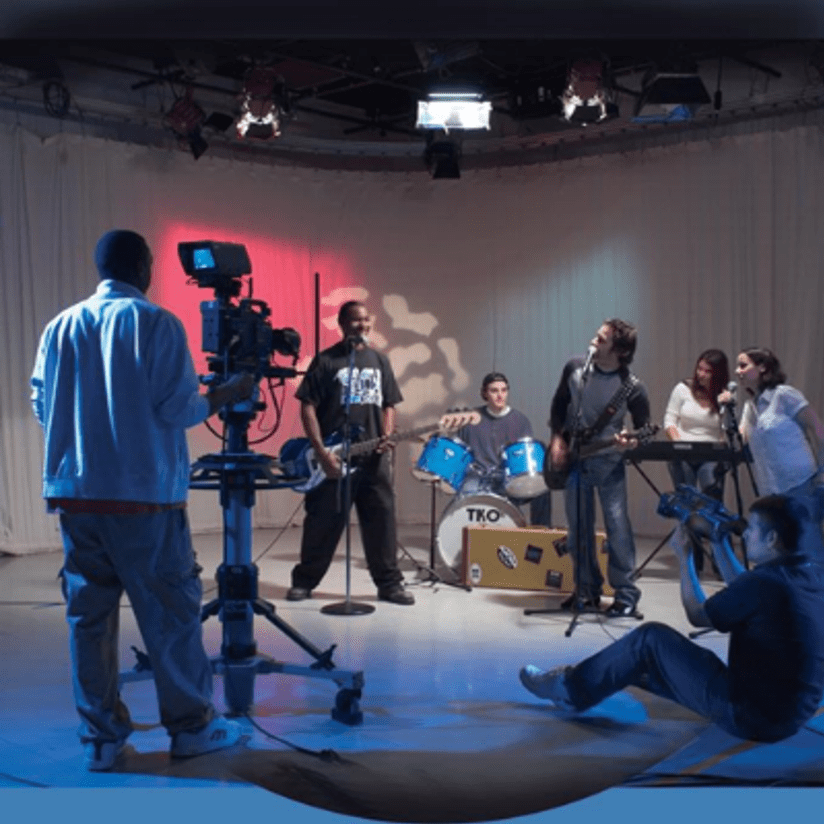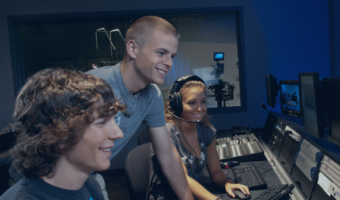Program Overview

The bachelor’s program in Digital Media Production builds on the foundational skills gained in the associate degree program in Digital Media Production. In addition, graduates of the Graphics, Multimedia, and Web Design program are also able to enter this degree program using alternate seventh term courses. The curriculum’s emphasis on the electronic media industry allows students to attain a high level of digital production expertise.
Digital Media Production video courses are designed to develop professional level skills in digital storytelling, client-based and new media programs. Audio courses enhance students’ abilities in the multi-track studio recording and mixing techniques. Students will also be introduced to remote location recording, sound reinforcement, and mixing for digital film.
Develop digital media production skills in digital storytelling, client-based, and new media programs, building on foundational competencies covered in your associate degree. Your capstone project will focus on producing a video or audio program for an outside client. The curriculum’s emphasis on electronic media allows you to attain a high level of digital production expertise.
Read More Experience in multi-camera location shooting, visual design, commercial, news, documentary, music video, and audio productions offer students opportunities to apply their creative talents and broaden their career options. Throughout the curriculum, students are challenged to apply real-world management-level problem-solving techniques within their production teams and when dealing with clients. The capstone project focuses on developing and producing a video or audio program for an outside client’s product or service. Acting as freelance producers, students work to their predefined budgets, production schedules, and scripts to deliver their finished programs on time while meeting client expectations. #DigitalMediaAtNEITFull Description
Potential Career Opportunities
A degree in Digital Media Production can introduce many exciting career opportunities at event venues, television studios and more. Popular titles include:
Camera Operator
Director
Audio Operator
Production Assistant
Lighting Director
Video Editor
FAQ
-
What can you do with a degree in digital media production?
With a degree in digital media production, you can find work at media companies, film studios, and related businesses. Production majors will be able to work across art departments as audio technicians, video editors, multimedia designers, and more.
-
What is a digital media major?
A digital media major involves classroom learning and hands-on-training as it relates to all aspects of digital storytelling. A digital media production major will study audio recording, post-production techniques, videography, screenwriting and more.
-
What is a media production?
Media production refers to the process of making a motion picture. This includes any media content designed for television, theater, social media sites, or any other viewable platform available to mass audiences.
-
Is digital media a good degree?
Individuals with interests surrounding a career in digital production, obtaining a degree in digital media can help you break into the field. A digital media production major will acquire a general education in media studies and the hands-on experience needed for entry-level positions. This will help them stand out to prospective employers.



